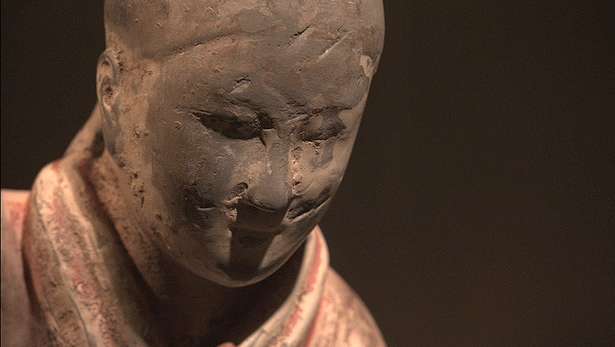Harkening back to last week’s discussion about the film Divided, let’s continue our discussion on the issue of Christian pedagogy. Is it true that a) separation from parents in church worship and discipleship, and b) that the practice of age-stratified ministries are really the root reasons for why so many young people are walking away from the church today?
According to the film, “the age segregated classroom hadn’t [been] seen before, hadn’t been a part of American history, [but] it was a modern innovation meant to accommodate evolutionary thinking.” But as we say, both through the Middle ages and through the Reformation, Catechisms and other forms of age delineated schooling was used to train and instruct young people in the ways of Christian theology.
But for those who have taken the time to watch the video, you know that the argument is made that “pagan” age-divided education begins even further back in history, as they attribute it originally to Plato.
How does one respond to that? Well, I might not go back to the 5th century BC, but did children’s education exist in Jesus’ time?
We certainly know that in the Hellenistic world of the Intertestamental Period through the first few centuries after Christ that there was a clear educational system in place for educating children through adulthood. Of course, Divided producers would agree, and point to this as proof of their argument. But we see that during this time, even Jewish education came to be classified according to a three-stage system- “primary, secondary, and advanced” (Everett Ferguson, Backgrounds of Early Christianity, 109). It is indubitable that the education of a child began at a young age, and that much of this did come in the home (112). In fact, education was a public process (J. Julius Scott, Jr., Jewish Backgrounds of the New Testament, 257). Yet, this means that not only did each father and mother play a role in their child’s lifelong education, but so did the community. Although mostly concentrated in Jerusalem until the second century AD, the community and the synagogue did provide schools for children at their respective ages (257). The beth sepher (house of reading) was established to teach the youngest children how to read, write, and memorize the Jewish Scriptures. These were normally taught in the Synagogue, by Scribes of the Jewish Law, not by parents (Ferguson, 112). After this, an older child would attend the beth midrash (house of instruction), which aligned its focus on the oral law (112).
Ultimately, based upon what I’ve read in forums and material from the National Center for Family Integrated Churches’ (NCFIC) website (www.ncfic.org), I am lead to believe that those associated with the movement ultimately would agree to such a Jewish approach to education; it is this fellowship model, one where a community focused on Christ, with heavy involvement of both the parents and the trained professional teacher, that creates the best environment. The real concern for those behind Divided is that the involvement of the trained profession doesn’t infringe upon or interfere with the role of the family. And I hope that all those reading this can agree with me in saying- absolutely.
But what concerns me is that the NCFIC tries to push its case so forcefully, and in such absolutist fashion, so as to lead us to believe that it is these ministry strategies that are responsible for the disappearance of a generation. Why is this a concern? Well, if the real issue at hand isn’t age-segregation, then we are certainly losing precious time researching the wrong antidote while this venom runs through our veins. Proper defense and medicine must first begin with the right diagnosis.
So, what is the BIG issue behind the disappearance of Christian young adults? Shoot me for being to simple, but perhaps the ultimate problem isn’t what is being added, but what is being omitted – where is the Gospel?
From DeYoung to Discoll, from Piper to Platt, perhaps the largest heartcry of many of the church’s leaders begun over the last few decades is seeing the Gospel side-stepped and substituted for other tricks and strategies. From the surfacing of the Seeker-Church to the appearance of the Emergents, the World, our Flesh, and the Slanderer will always be working to ensure that something besides the Gospel takes center stage in the life of the church.
Ultimately, as Challies has said before, is it not also possible that the demise in Christian parenting is because the Gospel is not being taught from the pulpit or in adult ministries anymore than it is in some of these youth ministries? And has not the Gospel’s message of living selflessly for the King been culturally combated by the message of living for one’s own satisfaction to a whole new level since the sexual revolution begun in our parent’s days? Does not the crisis of divorce perhaps also play a role in the collapse of the family as the foundation for training up a child in the way he should go?
One by-product of the arrival of a post-modern and individualistic thought is the attitude that one should not feel compelled to “fake” anything. Dishonesty to himself is also dishonesty to the world. Thus, our culture shift has raised a generation that will not tolerate “going through the motions.” Where as generations past may have still worn masks and played along with grandma’s old time religion, the Millennials are not about to float along in a Christian culture that is not truly their own. My deep belief is that although these numbers are alarming, they may not be as different from the percentage of the last generation who, after leaving home, left without genuine faith in Christ. They just now have the gumption to publically disown the Gospel in a way that the context of their society may not have tolerated as openly in the past.





7 Comments
Leave your reply.